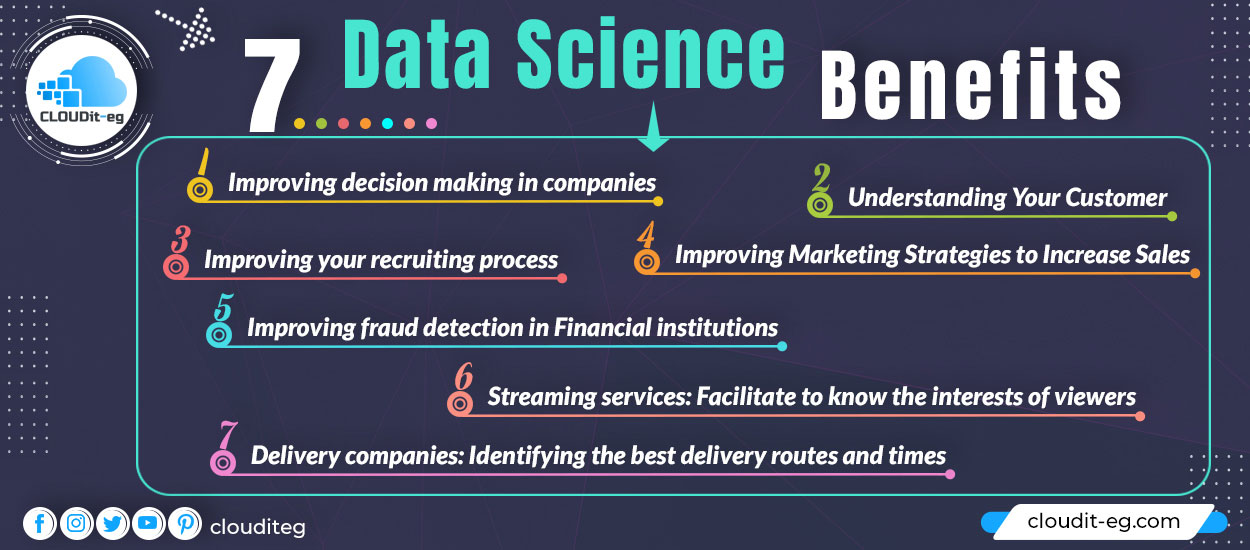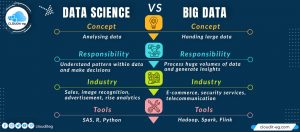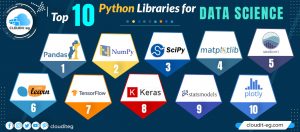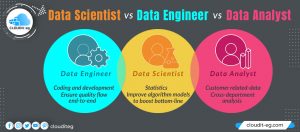Data science is a discipline that studies information: its source, what it represents, and the methods to transform it into useful resources for the creation of business and IT strategies.
Extracting large volumes of data, structured or unstructured, enables organizations to identify models that help them control costs, improve efficiency, identify new business opportunities, and improve their competitive advantage.
Data science involves mathematics, statistics, and computer science and integrates techniques such as Machine Learning, topological analysis, data mining, and visualization.
Data scientists
The amount of data generated by companies today continue to increase, as does the number of data scientists tasked with transforming raw data into valuable business information.
Data mining involves retrieving certain data from unstructured or poorly structured sources, then processing and analyzing it. Data scientists should have in-depth knowledge of analytics, machine learning, data mining, and statistics, as well as a solid background in algorithms and programming. In addition to managing and interpreting large amounts of data, they are often tasked with creating data visualization models to illustrate the business value of digital information.
To be effective, data scientists must not only be experts in data analysis, but they must also demonstrate emotional intelligence. Their most important skill is undoubtedly their ability to present actionable decision-making information, especially to leaders, and to clearly explain its meaning.
The digital information studied by data scientists comes from a multitude of channels and sources: smartphones, Internet of Things (IoT) devices, social network, surveys, purchases, research, and behavior on the Internet. By sorting through these large data sets and analyzing the data, data scientists are able to emerge models and solve problems; this process is referred to as data mining.
7 Benefits of Data Science
1. Improving decision making in companies
Globally, data science facilitates and improves decision-making in companies. Thanks to data scientists, companies have quantifiable and data-driven evidence to make their business decisions.
Ultimately, data-driven decisions can improve:
- Profitability.
- Operational efficiency.
- Business performance.
- Workflows.
2. Understanding Your Customer
For companies in contact with customers, data science makes it easier to identify and adjust target audiences.
3. Improving your recruiting process
It is also at the service of recruitment: internal processing of applications helps the human resources department to select new hires, faster and more precisely.
4. Improving Marketing Strategies to Increase Sales
The benefits of data science vary depending on the purpose and industry of the company. Sales and marketing departments, for example, can explore customer data to improve conversion rates or create personalized marketing campaigns.
5. Improving fraud detection in Financial institutions
Financial institutions are finding a way to improve fraud detection.
6. Streaming services: Facilitate to know the interests of viewers
Streaming services like Netflix use it to determine the interests of their users and leverage the data to decide which shows or movies to produce. Netflix also uses data-driven algorithms to deliver personalized recommendations based on user’s viewing history. Delivery companies – DHL, FedEx, UPS … –
7. Delivery companies: Identifying the best delivery routes and times
Delivery companies – DHL, FedEx, UPS – use data science to identify the best delivery routes and times, as well as the best modes of transport.
Data science is not yet very developed in a lot of companies, because identifying and analyzing a colossal volume of unstructured data is sometimes too complex, too expensive, and time-consuming.
Data science and Machine Learning
Statistical (or machine) learning is generally inseparable from data science because this artificial intelligence (AI) tool automates data processing. Its advanced algorithms do their own learning and can process very large amounts of data in no time compared to humans.
Once the structured data from machine learning tools is collected and processed, data scientists still need to interpret, convert, and synthesize it to present actionable insights to business decision-makers.
Machine learning applications used in the field of data science integrate image recognition and speech recognition and also, autonomous vehicles.




